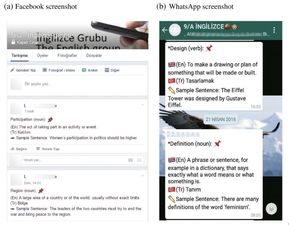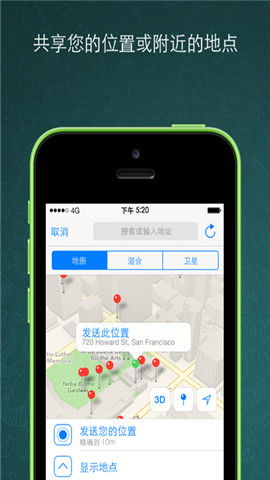Introduction

WhatsApp, a popular messaging app, has revolutionized the way people communicate globally. With its end-to-end encryption and user-friendly interface, it has become a go-to platform for personal and professional conversations. In this article, we will explore the features, benefits, and the impact of WhatsApp on modern communication.
Key Features of WhatsApp

WhatsApp offers a range of features that make it a versatile communication tool. Here are some of its key features:
End-to-End Encryption: WhatsApp ensures that all messages, calls, and media shared are encrypted, providing users with privacy and security.
Group Chats: Users can create groups to communicate with multiple people at once, making it ideal for family, friends, or work-related discussions.
Media Sharing: WhatsApp allows users to share photos, videos, documents, and audio files, enhancing the communication experience.
Sticker and GIFs: To add a touch of fun, WhatsApp offers a wide range of stickers and GIFs that can be used in chats.
WhatsApp Web: Users can access their WhatsApp messages on a computer by scanning a QR code, making it convenient for multitasking.
Benefits of Using WhatsApp

WhatsApp offers several benefits that have made it a favorite among users worldwide:
Accessibility: WhatsApp is available on various platforms, including Android, iOS, Windows, and even web, making it accessible to a wide audience.
Cost-Effective: Unlike traditional SMS services, WhatsApp offers free messaging and calling, saving users money on their mobile bills.
International Communication: With WhatsApp, users can easily communicate with friends and family across the globe, breaking down language and geographical barriers.
Business Opportunities: WhatsApp has also become a popular tool for businesses to connect with customers and clients, offering features like WhatsApp Business.
The Impact of WhatsApp on Modern Communication

WhatsApp has had a significant impact on the way people communicate in the modern era:
Increased Connectivity: WhatsApp has brought people closer, allowing them to stay in touch regardless of their location.
Shift from Traditional Communication: With the rise of WhatsApp, there has been a decline in the use of traditional communication methods like landline phones and SMS.
Information Sharing: WhatsApp has become a platform for sharing news, updates, and important information, especially during emergencies and crises.
Community Building: WhatsApp groups have become a way for communities to come together, share experiences, and support each other.
Challenges and Concerns

While WhatsApp has brought numerous benefits, it also faces challenges and concerns:
Privacy Concerns: Despite end-to-end encryption, there are concerns about data privacy and the potential for misuse of personal information.
Spam and Scams: Like any messaging platform, WhatsApp is prone to spam messages and scams, which can be harmful to users.
Over-reliance: There is a concern that people may become overly reliant on WhatsApp for communication, potentially leading to social isolation.
Conclusion

WhatsApp has become an integral part of modern communication, offering a secure, convenient, and cost-effective way to connect with others. Its features and benefits have made it a favorite among users worldwide, but it also faces challenges that need to be addressed. As technology continues to evolve, it will be interesting to see how WhatsApp adapts and continues to shape the way we communicate.
whatsapp messagingapp communication endtoendencryption groupchats media stickers gifs whatsappweb accessibility costeffectiveness internationalcommunication businessopportunities connectivity traditionalcommunication informationsharing communitybuilding privacyconcerns spam overreliance technology communicationplatform

